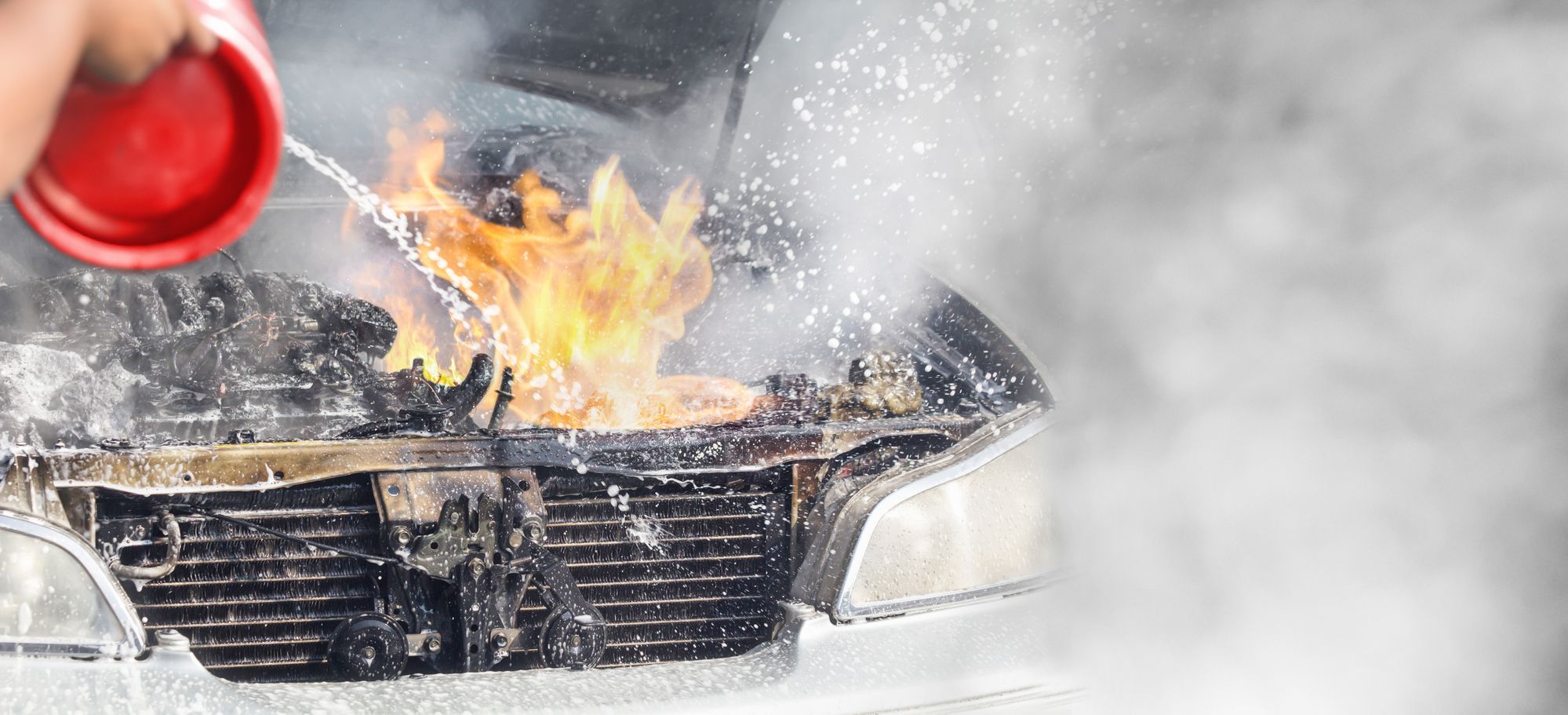Top Class Actions’s website and social media posts use affiliate links. If you make a purchase using such links, we may receive a commission, but it will not result in any additional charges to you. Please review our Affiliate Link Disclosure for more information.
An electrical fire in a car is scary—and for good reason, since car fires are dangerous and often linked with serious injuries.
The most common cause of an electrical fire in a car is some kind of auto defect, a problem with the automobile itself that was caused at the manufacturing level.
How Common Are Car Electrical Fires?
According to the U.S. Fire Administration, about 171,500 highway vehicle fires took place in the United States from 2014 to 2016. (Notably, a highway vehicle is one that is intended for use on a highway, not necessarily one on a highway when an accident occurs.)
These vehicle fires led to approximately 345 deaths, 1,300 injuries, and $1.1 billion in property loss.
How Dangerous Are Car Fires?
According to the National Fire Protection Association, car fires are far more likely to be caused by some kind of mechanical or electrical failure than collision. However, fatalities are much more often linked with collisions or overturn related fires than with fires caused by auto defects. That’s not to suggest that auto defect fires cannot be deadly.
Between 2003 and 2007, about 11 percent of car fires caused by mechanical failure or malfunction led to civilian deaths, though these made up about 49 percent of car fires. By contrast, in this same period, only about 3 percent of car fires were caused by collision or overturn, but these car accidents were associated with 58 percent of civilian deaths.
Victims who survive a car fire may be left with serious injuries, such as aggravated burns or severe scarring, and may require ongoing medical treatment and/or surgery. Victims of electrical car fires caused by defects may also suffer from emotional harm, anxiety, or post-traumatic stress disorder after experiencing this kind of traumatic event.
Because of the risks associated with auto defects, including the risk of an electrical fire in a car with certain defects, auto manufacturers have recall procedures in place to quickly deal with defective parts and protect consumers.
Indeed, the National Highway Traffic Safety Administration (NHTSA) has over the last fifty years recalled more than 390 million vehicles, along with tens of millions of tires, equipment and car seats, due to such safety defects.
Many car manufacturers have recalled vehicles due to flaws that could potentially cause the cars to experience electrical fires. In February 2020, Kia recalled more than 200,000 vehicles due to a defect that may allow water to enter into the brake computer. The affected vehicles are Sedona minivans manufactured between 2006 and 2010, as well as Sorento SUVs from 2007 through 2009.
If moisture enters into the antilock brake control computer, an electrical short may occur, leading to a possible vehicle fire. At least seven fires related to this defect have been reported by owners of the vehicles.
In July 2020, Hyundai also recalled thousands of vehicles due to a similar issue. More than 272,000 Elantra, Sonata, Accent, and Veloster vehicles may be affected by a defect that allows overheating to occur when inflating the tires. At least nine fires related to this issue have been reported.

What Are Common Auto Safety Defects?
Common types of vehicle safety defects include the following, among others:
- Acceleration/deceleration problems
- Airbag failure
- Battery issues that cause electrical fires
- Cracked wheels
- Defective seat belts
- Windshields or glass roofs that spontaneously shatter
Can I File a Lawsuit Over a Vehicle Safety Defect?
If your vehicle (either owned or leased) has a safety defect that has not been involved in a recall, is not covered by the warranty, or caused injury, you may be able to join this class action lawsuit investigation.
Filing a lawsuit can be a daunting prospect, especially while dealing with an injury, so Top Class Actions has mad the process easier for you by connecting you with an experienced attorney. Consulting an attorney can help you determine if you have a claim, navigate the complexities of litigation, and maximize your potential compensation.
Join a Free Vehicle Safety Class Action Lawsuit Investigation
If you own a vehicle that you believe has a safety defect and you are outside of the warranty period or you believe the defect should be covered by the warranty and it’s not, or you or a family member have been injured by a safety related defect, you may qualify to join this vehicle safety defect class action lawsuit investigation.
This article is not legal advice. It is presented
for informational purposes only.
ATTORNEY ADVERTISING
Top Class Actions is a Proud Member of the American Bar Association
LEGAL INFORMATION IS NOT LEGAL ADVICE
Top Class Actions Legal Statement
©2008 – 2024 Top Class Actions® LLC
Various Trademarks held by their respective owners
This website is not intended for viewing or usage by European Union citizens.















